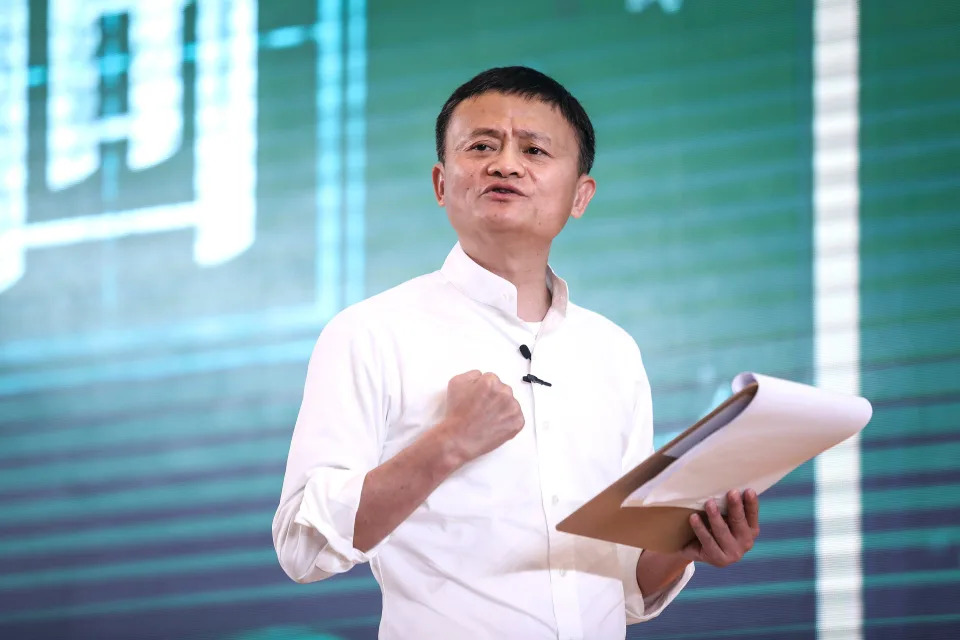Efficiency helped turn Silicon Valley around. China is taking it to the extreme to do the same.

-
China's tech bosses are pushing their workers as competition intensifies, the FT reported.
-
They are following a playbook from Silicon Valley, where bosses cranked up the pressure and laid people off.
-
Don't expect the pressure to lessen as China's economy struggles.
Silicon Valley bosses responded to times of crisis by turning the screw on workers. Now, China's tech bosses seem ready to do the same.
Mark Zuckerberg, Andy Jassy, and other CEOs have resorted to layoffs, return-to-office mandates, and other policies prioritizing "efficiency" in the past two years to combat a sell-off among investors who grew concerned that tech companies became over-bloated and distracted with "fake work" during the pandemic. They planned to show the market that their companies could still deliver out-sized returns and form a central part of the economy — with leaner operations.
With around 363,000 workers laid off since January 2023, many staff were left feeling burned out as they took on more work. But bosses were rewarded.
Meta's Mark Zuckerberg said layoffs were part of an "efficiency" era. The company's market capitalization has climbed from around $300 billion to $1.26 trillion since it announced it was laying off 13% off its workforce in November 2022. Other Silicon Valley companies have witnessed a similar turnaround.
China is pushing tech workers even harder
Chinese tech companies seem willing to take Silicon Valley's efficiency mantra even further.
That's according to a new report from the Financial Times, which notes that bosses in China are upping the pressure on workers after the country's top five tech companies lost around $1.3 trillion in market value since 2021.
For instance, Richard Liu, the veteran business leader at the helm of Chinese e-commerce giant JD.com, recently told staff over a video call that employees who "prefer to enjoy life" are "not our brother" and that "we should not be working together," the Financial Times reported Monday.
It's not the first time Liu, whose company's share price fell by roughly half in 2023, has talked tough to employees about the company's direction. In an internal memo in December, the tech boss told employees that "we need to change, or there's no way out for our company," Bloomberg reported.
A key reason this tone has emerged is competition.
Big names on China's tech scene, like JD.com and Jack Ma's Alibaba, have faced a threat from fast-growing newcomers like Pinduoduo, the sister company of online marketplace Temu. Pinduoduo has also been called out for a culture of "extreme overtime" by the likes of the China Labor Watch, a nonprofit organization focused on labor rights in China.

As the FT report noted, workers are increasingly using the term "neijuan," which translates roughly to "involution," to describe extreme pressure to outdo competitors, while having smaller and smaller teams to work with. Ma's Alibaba, for instance, cut around 20,000 workers last year.
Chinese tech workers have been no strangers to aggressive work policies over the years.
During their growth in the 2010s, several tech companies in China adopted a so-called "996" working system that demanded 12-hour days from 9 a.m., six days a week.
This policy was once advocated by Chinese business titans such as Ma. Though this brutal working pattern has faced a regulatory crackdown from Beijing, business leaders aren't giving up in their bid to find new ways to pressure workers during a new period of crisis.
Last month, videos posted to Chinese social media showed Qu Jing, public relations lead at internet giant Baidu, setting out expectations of workers, such as being prepared to travel for 50 straight days on business.
"I only care about results," she said in one video.
Qu left Baidu after her comments were made public, but the ferocity of what China's tech workers are hearing isn't abating.
As long as China's economy continues to stutter and competitors claw for consumers, those who want to work in its tech sector may have to keep bending to their bosses' diktats.
AfriPrime App link: FREE to download...
https://www.amazon.com/Africircle-AfriPrime/dp/B0D2M3F2JT
China may miss booming global market for high-bandwidth memory chips, BofA analyst says
Surging demand for high-bandwidth memory (HBM) chips - used in data centres for artificial intelligence (AI) projects - is heating up the global semiconductor industry, but mainland China's supply chain is not ready to reap the benefits of this booming market segment, according to a Bank of America (BofA) analyst.
"Memory chips are experiencing a significant impact from the rise of AI, with the main driver currently being the demand for HBM in data centres, but not yet from smartphones," Simon Woo, managing director and coordinator of Asia-Pacific Technology Research at BofA Securities, told the South China Morning Post on Friday.
That is projected to result in about an 80 per cent revenue growth for the global memory chip market this year, compared with the low base last year, according to Woo.
HBM chips, which are typically bundled with AI accelerators such as Nvidia's H100 graphics processor unit, are an indispensable component for developing large language models, the technology behind generative AI services such as OpenAI's ChatGPT. This market segment is dominated by South Korea's SK Hynix, which has a 50 per cent global market share, followed by Samsung Electronics and US-based Micron Technology.

A 3D rendering of high bandwidth memory chips bundled with an advanced artificial intelligence processor built on servers in a data centre.
Mainland China currently accounts for about 30 to 35 per cent of global memory consumption, according to Woo. Under current market conditions, "China will rely more on Korean memory chips as its AI ecosystem grows".
"China's [semiconductor] supply chain is still insufficient for high-end memory fabrication, with its growth mainly focused on mid to low-end solutions," he said.
That reflects the work that China, which is burdened by US tech restrictions, must accomplish to narrow the gap in the memory chip segment.

SK Hynix competes with Samsung Electronics and Micron Technology in high-bandwidth memory chips.
Woo, however, said China may find opportunities in lower end memory products for implementing AI on so-called edge device applications such as autonomous vehicles, and AI-enabled smartphones and personal computers, which do not require HBM.
The memory sector experienced a collapse last year owing to a decline in demand for smartphones, PCs and traditional servers - the three major products driving demand for memory chips, Woo said.
"Even after the rapid growth this year, AI will continue to fuel demand, increasingly driven by edge AI on individual smartphones," Woo said. "It will further contribute to around 20 per cent growth in industry revenue in 2025."
China's semiconductor supply chain, however, may face further restrictions. The US is reportedly pressing its allies Japan and the Netherlands to limit China's capabilities to develop HBM chips, Bloomberg reported last week.
AfriPrime App link: FREE to download...
https://www.amazon.com/Africircle-AfriPrime/dp/B0D2M3F2JT
Top China Lithium Firm Files International Claim Against Mexico
Ganfeng Lithium has filed an international arbitration case against Mexico after the Latin American nation canceled a potential mining project valued at more than $1 billion.
Efforts by Ganfeng, China’s top lithium firm, to build Mexico’s first commercial lithium mine were upended by 2022 legislation championed by President Andres Manuel Lopez Obrador who sought to nationalize the sector to prevent foreign countries from exploiting a strategic resource.
Ganfeng bought Bacanora Lithium Ltd. in 2022 when the latter was embarking on development of an open-pit mine and processing facility in Sonora state that would have churned out 35,000 metric tons a year, giving the country a homegrown source of lithium for its fast-evolving electric vehicle supply chain.
Work was put on hold following the passage of a bill in April 2023 to give the state total control of lithium mining. The Chinese firm had sought to form a public-private partnership.
After years of trying to resolve the matter in local courts, Ganfeng registered a case June 21 at the World Bank’s International Centre for Settlement of Investment Disputes, with Mexico’s Economy Ministry listed as the respondent.
AfriPrime App link: FREE to download...
- Questions and Answers
- Opinion
- Story/Motivational/Inspiring
- Technology
- Art
- Causes
- Crafts
- Dance
- Drinks
- Film/Movie
- Fitness
- Food
- Oyunlar
- Gardening
- Health
- Home
- Literature
- Music
- Networking
- Other
- Party
- Religion
- Shopping
- Sports
- Theater
- Wellness
- News
- Culture
- War machines and policy


